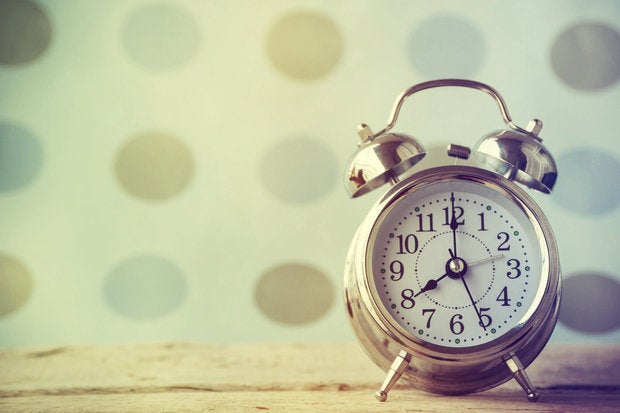Data Spotlights Average Sleep Patterns in U.S. Cities.
By James A. Martin | Feb 26, 2015 6:19 AM PT

How does your average sleep time compare to other people in your city and across the United States? The folks at Northcube AB, developer of the Sleep Cycle sleep-monitoring app, crunched their numbers and came up with some valuable insights.
Jacksonville, Fla., is the most stressed-out city in the United States, according to data from the folks behind Sleep Cycle, a sleep-tracking app for Android and iOS. Who knew? I’d have predicted New York, Chicago, Boston or Washington, D.C.
Sleep Cycle is just one of many apps, wearables, and bedroom gizmos designed to monitor sleep. I haven’t used the app, because you have to place your smartphone in bed with you to track your sleep, and I don’t like that idea. However, I’ve been tracking my sleep using Fitbit Surge ($250), and I also recently tested ResMed S+, a $150 cube that monitors your nocturnal breathing and movement.
Like many others who track sleep, I started to wonder what all this data actually means. While the devices give you some detail on your sleeping patterns, the information lacks context. For example, if you slept only 7 hours last night, how does that compare to the average?
Here’s some context, based on Sleep Cycle data collected from its from users in January 2015. The information comes from 142,272 Sleep Cycle users who “voluntarily and anonymously” shared their sleep data, according to the company.
Most-Stressed U.S. Cities
Sleep Cycle asks its users if they’re feeling stressed before bed each night. Jacksonville, Fla., topped the chart, with 40.2 percent of users saying they were stressed, followed by Las Vegas (39.4 percent), Dallas (37.7 percent), and San Antonio (37.5 percent). In Chicago, 35.4 percent of Sleep Cycle users said they were stressed out before bedtime, trailed by New York (33.4 percent) and Washington, D.C. (33.1 percent). Boston was near the bottom, at 30.6 percent. Milwaukee, at 28.2 percent, was the least stressed city on the list.
Time in Bed
Conventional wisdom suggests eight hours is the optimal sleep time each night. However, no city averaged 8 hours or more in bed each night. St. Paul users recorded the longest time, at 7 hours and 22 minutes, and Las Vegas saw the shortest time in bed, at 6 hours and 58 minutes. (Talk about a city that never sleeps!).
Where the Night Owls and Morning People Are
New Yorkers, unsurprisingly, shut their eyes later than everyone else, at 12:22 a.m. It was lights out in Louisville, Kentucky, at 11:22 p.m., the earliest city to go to bed.
As for wake-up time, Phoenix was earliest, at 7:05 a.m. The slackers were in Cleveland, where the average rise-and-shine time was 7:55 a.m.
Overall Sleep Quality
Sleep Cycle assigns a quality rating for each sleep period you record. Users in Albuquerque, N.M., received the best score, followed by Seattle, Jacksonville and San Diego. The worst sleep scores went to users in Las Vegas, Orlando, Indianapolis, and at the very bottom, Kansas City.
What Does it All Mean?
We’re really just starting to see the effects of using apps to gather personal data, and developers are attempting to interpret that information on a large scale. I applaud Sleep Cycle’s efforts, and I hope to see this trend progress further.
Specifically, I’d like to see how my sleep compares to the average sleep time of men my age — or better yet, how it compares to the average number of hours men my age slept last night. That’s a tall order, I realize, but if these apps and devices really want to be helpful, they should give us as much context as possible, and then provide specific recommendations for improving our sleep, exercise or dietary habits based on that data.




